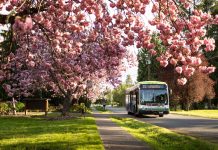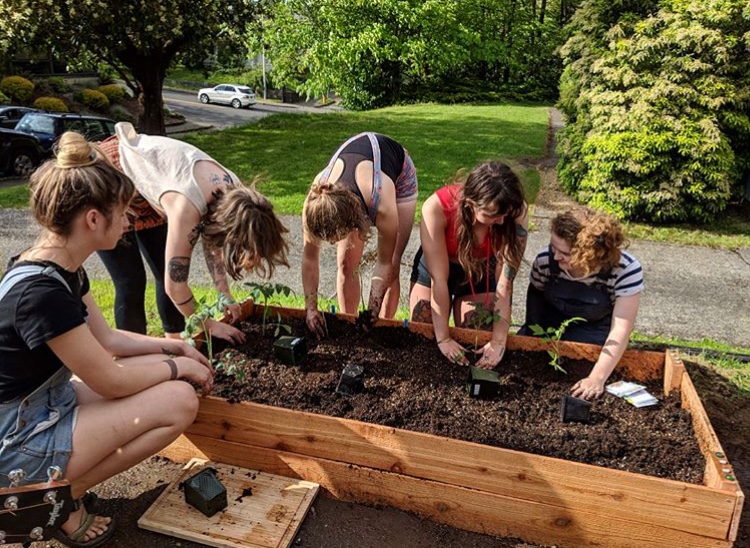While walking around Olympia in the warmer months, you can’t help but notice the abundance of homes with garden beds. Backyard gardening is a fun and rewarding way to grow your own food, while creating opportunities to get outside and spend time with your family. Getting started with gardening may seem intimidating, especially for those who don’t consider themselves to have a green thumb, but truly all it takes to grow plants is a little space.
 Urban agriculture is important because it allows people who live in urban areas access to local, fresh food, and helps reduce reliance on food that has to be transported great distances, which creates strain on the environment. Growing your own food also saves household grocery expenses. Getting food from your own backyard, or a neighbor’s, is about as local as it gets.
Urban agriculture is important because it allows people who live in urban areas access to local, fresh food, and helps reduce reliance on food that has to be transported great distances, which creates strain on the environment. Growing your own food also saves household grocery expenses. Getting food from your own backyard, or a neighbor’s, is about as local as it gets.
Getting Started
Regardless of if you’re planning on converting an entire backyard to rows of vegetables, or simply are planting a few in pots on a front porch, it’s essential to make sure that you’re starting a garden in a location that gets enough sunlight, and is sheltered from the wind.
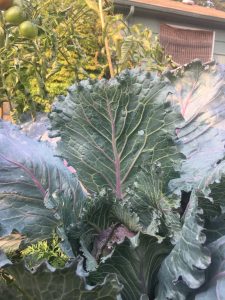
If you have the space, raised beds prevent soil compaction, create a barrier between weeds and your garden, and provide good drainage for beds of vegetables, herbs, or flowers. Raised beds can be purchased from a garden supply store, or can be easily constructed using 2x4s. Trellacing creates support for plants that grow upward, such as peas, and also reduces space needed for gardens.
Planning what plants to grow can be as simple as thinking about what vegetables you may want to eat, or your favorite flowers. However, some plants are easier to grow than others. Kale, carrots, radishes, lettuce, squash, and potatoes are generally regarded as some of the easiest vegetables to grow.
Growing plants that provide shade for others, can serve as a trellis for others, or otherwise support the surrounding plants is a form of permaculture. Depending on the plant, and your experience with gardening, plants can either be grown from seeds or from starts. While seeds are more cost efficient, growing plants from starts can often be an easier, less intimidating way to start gardening.
Buying seeding soil when planting seeds, and the appropriate type for what kind of gardening you are doing, will help your garden succeed. Adding organic matter, such as compost or mulch, to soil will help add nutrients.
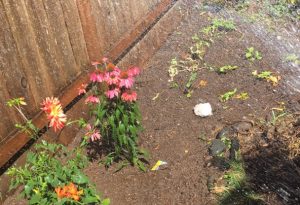
For those with the space and time that they require, chickens, ducks, and rabbits are popular animal additions to gardens. Poultry and rabbits require food and water, a coop or hutch, and ample space to roam. They must be kept safe from predators, such as foxes and raccoons. Introducing animals, which offer eggs and meat along with companionship, can enhance your urban garden, allowing you to source more types of food from your backyard.
Regulations
Regulations on gardening and urban farming differ by city. In an effort to support access to local, healthy food, and to promote healthy recreation while beautifying urban spaces, the City of Olympia has zoning and regulations that support and encourage growing your own food.
Urban farming is allowed across Olympia, and residents are also allowed to garden in the strips of land between the sidewalk and the curb. On properties one acre or less, up to five female chickens or ducks are allowed, and up to five rabbits. However, roosters are not allowed. Coops and hutches must have at least a five-foot setback from the perimeter of the property. The City of Olympia also allows and encourages rooftop gardens, urban beekeeping, and community gardens.
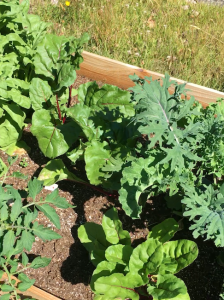
Community Gardens and Resources
Community gardens create communal space for neighbors to garden together, making growing food accessible to those without personal space to do so, and creating community around urban agriculture. The City of Olympia offers two community gardens, the Sunrise Community Garden and the Yauger Community Garden. Both gardens are available to everyone, not just residents of Olympia, and offer tool sheds, composting systems, and other resources. Community members register online to reserve a bed for a fee, with financial assistance available for those in need.
With a little planning and dedication, backyard gardens and urban farming can become a reality for anyone who’s interested in picking up a new hobby and eating delicious produce while helping the environment and making use of urban space. GRuB (Garden-Raised Bounty) offers a Victory Garden Project, in which they partner with veterans, individuals, families, and organizations to help create backyard gardens for those under the poverty line. GruB also hosts an extensive gardening workshop series to help empower those interested in growing food. Washington’s SNAP (Supplemental Nutrition Assistance Program) allows those receiving benefits to use EBT to purchase seeds or food producing plants.
As always, local nurseries and garden supply stores will always be happy to help you select the right products, or give advice for new gardeners. Gardener’s Supply Company offers an online garden planner, along with many other resources that can help you create the garden of your dreams.









